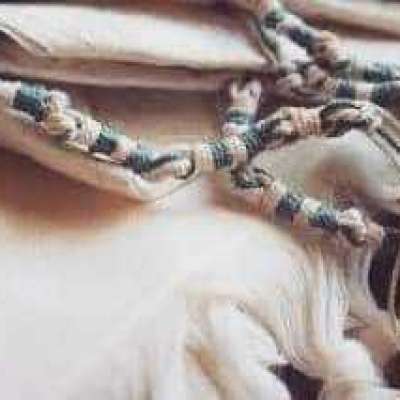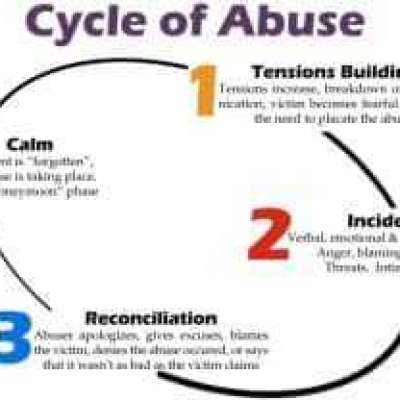Watch
Events
Articles
Market
More
Shalom Ladies,
I’m going to broach a subject that needs to be brought out and discussed more and more within Israel, and the victims need to recognize what’s happening to them, take back their lives and return back to HaShem and set about establishing healthy boundaries and finding healing.
The subject is Family Abuse. I bring this up because I was a victim from a previous marriage, and am still fighting to overcome its effects from certain extended family either by their sin of remaining silent in the presence of emotional and verbal violence being committed, or by the acts of verbal, mental and emotional abuse committed themselves. Abuse comes in many ways, and can be suffered within any relationship: parent to child, adult child to parent, older sibling to younger (the abuse continues into adulthood), adult niece or nephew to aunt or uncle, husband to wife, wife to husband, significant others (either gender).
There are tendencies to excuse, overlook, love them through it, feelings of guilt and natural anger as boundaries of respect and honor are continuously crossed by the abuser. Only in coming to terms with the truth of the relationship, of that person and sometimes that realization is revealed by comparing one’s family dynamics with someone else’s, and be willing to make the change within oneself will breakthrough finally take place. You have to also understand that it is NOT your responsibility to bring healing to an abuser. That is the psychological weight that abusers lay upon the victims by making them feel responsible for the abuser’s welfare. This is NOT true and boundaries must be made in many ways to break the cycle for one’s own safety.
From an article:
Birth-Family Abuses of Adult Daughters
"When people show you who they are, believe them"....Maya Angelou
An abusive birth-relative is most often a parent, but can also be a sibling, grandparent, cousin, aunt or uncle. When we refer to abusive, controlling, or abandoning "birth-families", we mean the family who raised you, and who was supposed to love, protect, and cherish you. This includes adoptive, step-, and foster families.
There are a number of behaviors that can be considered abusive, but we often don't think of them in that way simply because we have been raised experiencing these behaviors from a relative that we have known all of our lives, and we think of his behavior as normal, because it is all we have ever known from him.
Because we love this person, we tend to overlook his behavior. We have also been trained since childhood to ignore or make excuses for the abuse by other relatives who are in denial or who protect the abuser (see The Silent Partner). A family member's bad childhood, background, war experiences, alcoholism, personality disorders, psychological problems, etc., may help us to understand him, but should never be used as an excuse to justify his mistreatment or abuse of others. Whether he chooses to get help for his issues or not, he does not have the right to inflict them on anyone else.
We sometimes don't understand that we are really being abused until we compare our family relationships with someone else whose family does not behave in an abusive or controlling manner.
Any behavior which attempts to control you is abuse, simply because adults do not control other adults. When any given behavior causes you stress on a regular basis or begins to undermine your self-esteem, it has crossed the line into abuse.
Here are some examples of abusive behavior. Please e-mail us any others you can think of so we can add them to our list.
Criticism Manipulation Humiliation Betrayal Insults
Undermining self-confidence Guilt-Trips Name-calling
Disrespecting Intruding Unreasonable expectations
Treating you like a child Telling you what to do Unloving
Demeaning Not respecting your privacy Lying Stealing
Judgmentalism Raising voice at you Trying to bribe you
Threatening Disowning Making demands Sabotage
Expecting 'obedience' from you even though you are now an adult
Pressuring Snide comments Abandoning Giving orders
Inappropriate anger Frequent rudeness
Expecting you to take care of them or solve their problems
Expecting you to sacrifice for them while ignoring your needs (one-way relationship)
Instigating trouble between family members Selfishness
Prying Pressuring you to lie, cover up, or keep family secrets
Picking fights Screaming Belittling Sarcasm Using you
Complaining about you to others Denial Taking advantage
Whining or using tears to get own way The Silent Treatment
Making scenes in public or in front of your children
Pressuring you to take sides with them against other relatives
Blaming you for whatever they're unhappy about
Blaming you or others for whatever they do wrong
Insensitivity Inconsideration Hurtfullness Uncaring
Minimizing your feelings Nastiness Belligerence Cruelty
Making you doubt your perceptions Pouting Gossiping
Negative remarks about your weight, appearance, etc.
Transferring their abuse to your spouse when you get married, rejecting your spouse
Competing with your spouse
Trying to make an ally of your spouse, smothering your spouse with love to make you look crazy and turn him against you later on.
——
I’ll continue on this topic tomorrow on the Effects of Abuse and Why They Abuse, Betray, or Abandon You.




